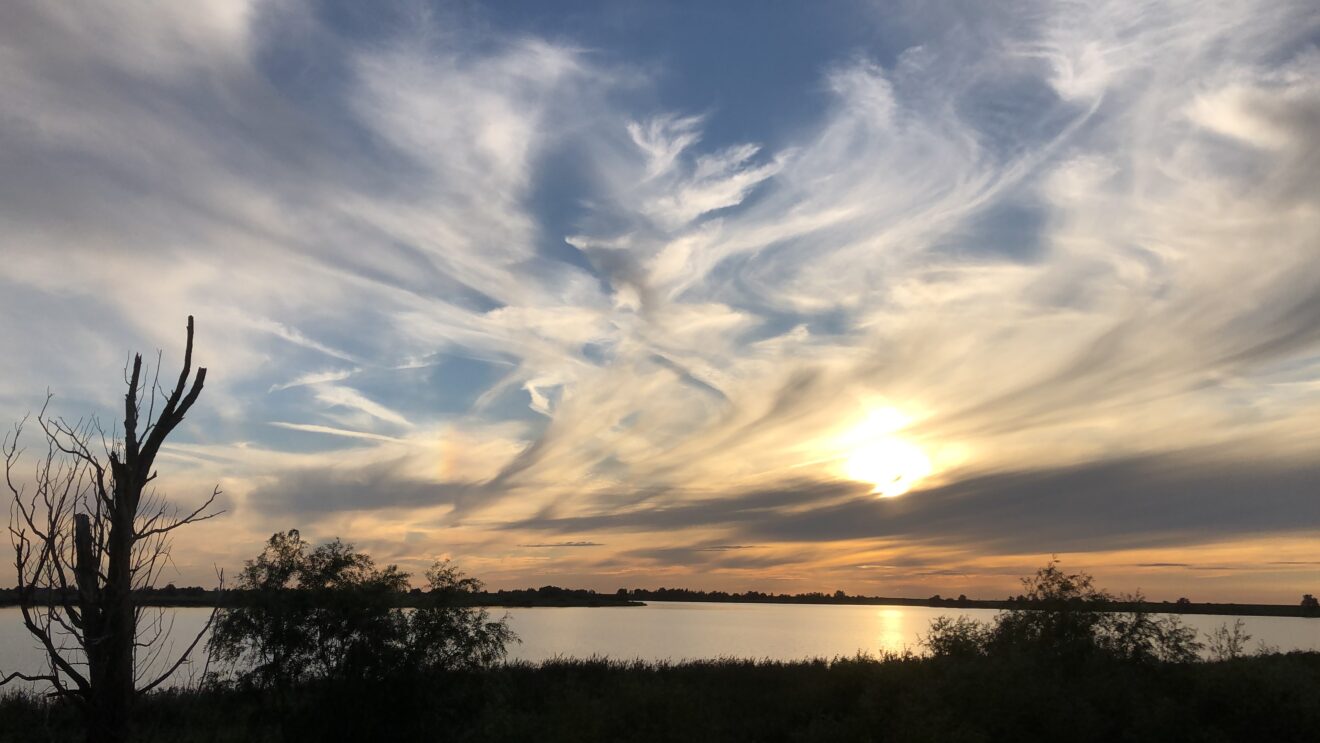The Book of Yourself Newsletter
Issue 20: July 2023
|

|
Since the online premiere in June 2021 of The Wisdom of Trauma, a documentary on the work of Canadian doctor and best-selling author Gabor Maté, I have become increasingly aware of the existence of a whole movement concerned with the understanding and healing of trauma. These traumatologists have studied this psychosomatic pathology in depth and they see very clearly and dramatically its catastrophic effects on the lives of individuals and their immediate environment. This new breed of traumatologists are doctors and psychotherapists intent on raising the general awareness of this pathological condition not only within their medical profession but in the general culture so that we live in a trauma informed society. This is a natural extension of their clinical work because the aetiology or causes of trauma cannot be dissociated from the larger world. It is in relationship, or more precisely in the lack of it, where trauma has its painful origins. The healing of trauma is therefore not a purely individual matter, for it involves the vast network of interrelationships in which we exist. One cannot, for example, separate the PTSD of a soldier from the society that cultivates war or war from the general condition of division and conflict pervading human consciousness.
|
Trauma is a frozen and repeating pattern of reaction brought about by an overwhelming event or series of events that has become embedded in the circuitry of the brain, whose very structure it has altered. It is essentially an experience the brain was unable to process and lay to rest. These scars of experience trap the person in his/her own past, which they are then condemned to relive over and over again. Behind such traumas lies an unbearable feeling of pain and the various associated symptoms are strategies the person affected was forced to adopt in order to cope with it. As the past is the dominant factor, he or she is unable to deal with actuality, resulting in a general inability to relate with others or with oneself. There’s an inner struggle between the need for homeostasis and the enduring and unbearable agony. This fragmentation results in a disconnection from one’s feelings and sensations, leading to the development of DPD, dissociative personality disorder, and even bipolarity.
|
In their compassionate search for a cure these traumatologists have developed a whole panoply of healing modalities in addition to the standard psychotherapeutic practices. One of their established principles is the causal connection between traumatic mental states, disease and dysfunctional and harmful behaviour. This is of critical importance, as the standard practice of medicine is based on the separation of mind and body, whereas illness is an unfolding from the total biopsychoemotional processes shaping our lives. So all these aspects have to be taken into account. Among the healing approaches most often mentioned are IFS (internal family systems), EDMR (eye movement desensitisation and reprocessing), the polyvagal theory and neurofeedback. These main treatment modalities are supplemented with such things as yoga, theatre, compassionate inquiry and the controlled use of psychedelics such as MDMA and ayahuasca. The point is to undo the dissociative state by fostering the connectivity of senses, heart and mind. For in essence the cure consists in the restoration and strengthening of self-awareness in which the hidden traumatic truth is revealed and resolved.
|
I am not a specialist in any medical field and in addressing this question of trauma it is not my purpose to make a learned exposition – not that I could, either. However, it clearly relates to the issue of pervasive psychological hurt and suffering, which is a central aspect of our inquiry. Furthermore, it would appear that the scientists are giving significant support to the core premise that self-awareness is the key to freedom and wholeness. But in the short space of this newsletter, I would like to touch on the primary role of relationship in our overall health and sanity. In this regard, I found it rather interesting that in his magnificent In the Realm of Hungry Ghosts – Close Encounters with Addiction (2018), Maté should have quoted K to this effect:
|
|
“Action has meaning only in relationship and without understanding relationship, action at any level will only breed conflict. The understanding of relationship is infinitely more important than the search for any plan of action.”
|
For K relationship is primary because it is the very ground of existence. Ultimately life, relationship and action are synonymous. Conflict at every level indicates our lack of understanding of relationship and, by implication, of ourselves. So it is to relationship we must look, to the actual relationships we have, for the restoration of the health and wholeness of life. But relationship as we know it is often mired in dependence and anxiety, among other things because it is based on need, use and gratification, which lead to violence.
|
|
“We use each other for mutual gratification. The present structure of society, which is our relationship with each other, is based on need and usage. You need votes to get you into power; you use people to get what you want, and they need what you promise. The woman needs the man, and the man the woman. Our present relationship is based on need and use. Such a relationship is inherently violent, and that is why the very basis of our society is violence. As long as the social structure is based on mutual need and use, it is bound to be violent and disruptive; as long as I use another for my personal gratification, or for the fulfilment of an ideology with which I am identified, there can only be fear, distrust and opposition. Relationship is then a process of self-isolation and disintegration. This is all painfully obvious in the life of the individual and in world affairs.”
|
|
Commentaries on Living, Second Series, pg. 69
|
|

|
This is painfully obvious, says K, but one wonders to what extent we are aware of the nature of our relationships and whether they are inherently violent because they are based on need and use. These egocentric motivations do reduce relationship to a process of self-isolation and the corresponding disintegration because the isolation itself denies relationship. This is not just a private or personal affair but a social issue, for society is the collective organisation of the values and practices informing our relationships, not only with people but with things and ideas. And, as amply demonstrated in daily life, our society is riddled with fragmentation.
|
|
“There is the army within its own walls of self-interest; and the businessman enclosed within steel and glass; and the housewife pottering about the house waiting for her husband and her children. There is the museum keeper, and the orchestra conductor, each living within a fragment of life, each fragment becoming extraordinarily important, unrelated, in contradiction to other fragments, having its own honours, its own social dignity, its own prophets. The religious fragment is unrelated to the factory, and the factory to the artist; the general is unrelated to the soldiers, as the priest is to the layman. Society is made up of these fragments, and the do-gooder and the reformer are trying to patch up the broken pieces. But through these separative, broken, specialised parts, the human being carries on with his anxieties, guilt and apprehensions. In that we are all related, not in our specialised fields.”
|
The Only Revolution, pg. 122
|
Here K would seem to take issue with the fragmentation brought about by occupational specialization, both between professions and in their internal hierarchical orders. Such specializations may be functionally necessary as society is constituted, but they do make for competition, ambition and envy. They do not make for a sense of relatedness and cooperation, nor do they seem to alter the inner sense of insecurity, apprehension and guilt, of suffering, which is where K finds our real relationship, for these things are common to us all and the realization of this fact is one of the grounds of compassion. The deeper issue, however, is conditioning, which makes for self-centredness, isolation and conflict.
|
|
“Being conditioned, life becomes fragmentary; life, which is the everyday living, the everyday thoughts, the aspirations, the sense of self-improvement – which is such an ugly thing – that is all fragmentary. This conditioning makes each one of us a self-centred human being, fighting for his ‘self’, for his family, for his nation, for his belief. And so ideological differences arise; you are a Christian and another is a Muslim or a Hindu. You two may tolerate each other, but basically, inwardly, there is a deep division, contempt, one feels superior and all the rest of it. So, this conditioning not only makes us self-centred but also in that very self-centredness there is the process of isolation, of separation, of division and this makes it utterly impossible for us to cooperate.”
|
Talks in Saanen 1968, pg. 20
|
Conditioning is the condensation of the past into a series of reflexes resulting from the unmindful operation of consciousness. In this regard, conditioning is structurally similar to trauma. Trauma, in any case, could be seen as a particularly harmful form of conditioning, conditioning being at the very origin of trauma. So the question of trauma involves not just the whole of society but the whole of consciousness as we know it. But while some would maintain that the best we can do is to heal our wounds so we can return to normality, others point out that this would be equivalent to curing a veteran of PTSD so he can be sent back into battle. Such normality, as Maté might put it, is a myth, for it is at the very source of our violence and sorrow. Fortunately, cause and effect do not constitute an unbreakable karmic chain:
|
|
“Neither cause nor effect is ever final, unchangeable – that would be everlasting enslavement and decay. Each effect of a cause is undergoing many influences from within and from without, it is constantly changing, and it becomes in its turn the cause of still another effect. Through the understanding of what is actually taking place, this process can be stopped instantaneously, and there is freedom from that which has been. Karma is not an ever-enduring chain; it’s a chain that can be broken at any time. What was done yesterday can be undone today; there’s no permanent continuance of anything. Continuance can and must be dissipated through the understanding of this process.”
|
Commentaries on Living, Third Series, pg. 280
|
It is in the awareness and understanding of what is actually taking place that the fixity and mechanical continuity of the past can be broken. This freedom from conditioning is the necessary ground of healing. Healing means restoring wholeness. Wholeness is goodness and goodness, in its deepest sense, is the essence of wisdom. No wonder Maté and his fellow traumatologists perceive that connection and are intent on raising our self-awareness so there can be right relationship, with its sensitivity, intelligence and compassion.
|
Be well, amigos, and journey into the heart of sorrow, where lies the spring of wisdom.
|
Photos: J. Gómez Rodríguez: 1. Het Bovenwater, Lelystad; 2. Sunset, Nature Reserve, Lelystad.
|
|
|
|
|
|
|
|